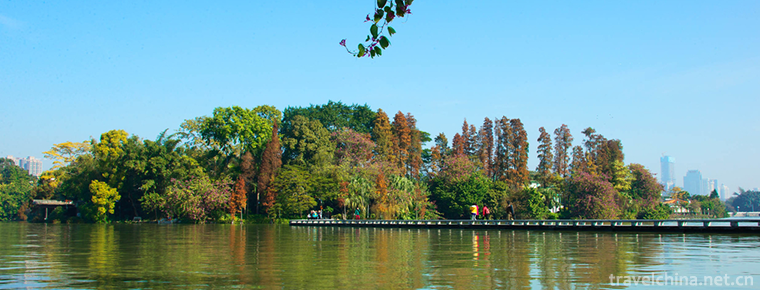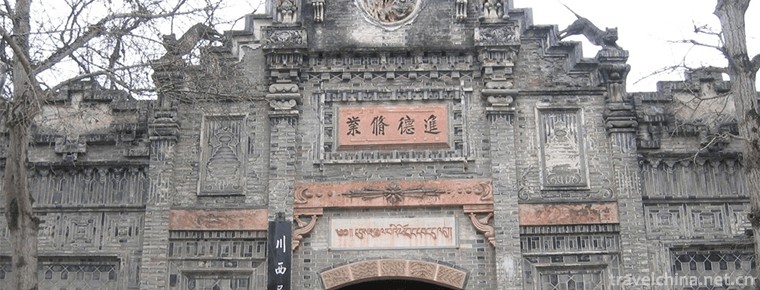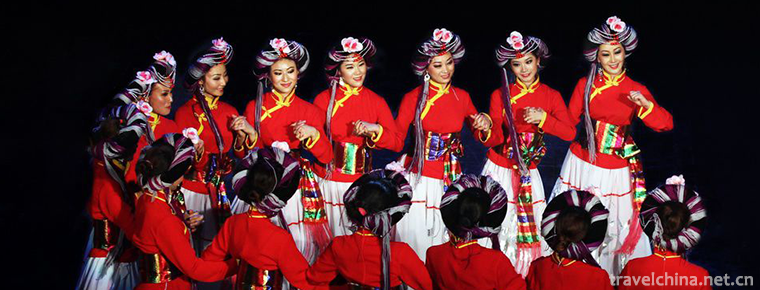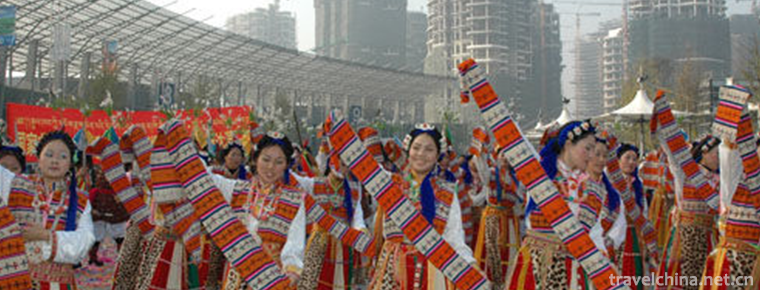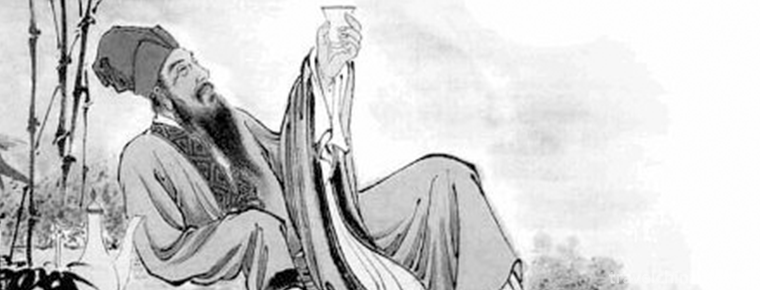Donkey HamBurger
Donkey HamBurger is a popular traditional snack in North China. It originated in Baoding. Widely spread in the central Hebei Plain, the brine good donkey meat adds the old soup to join the crispy fire inside. As the food and beverage cultural center of Hebei Province and the birthplace of Hebei cuisine, Baoding donkey meat burning has been continuously developed and promoted by the industrious people of Hebei Province, and finally made donkey meat burning famous in the north and south of the Yangtze River. In the streets and alleys of North China, donkey meat shops can be seen everywhere, which are fully integrated into the lives of local residents. In addition, Hebei Hejian also has a similar name food, but the practice and taste are quite different. The most intuitive difference is that Baoding Donkey Meat fire is round, while Hejian Donkey Meat fire is rectangular. According to the Records of History, Donkey Meat fire originated in Baoding, Hebei Province, in the second year of Jianwen in the Ming Dynasty (1400 A.D.), and now spreads all over Yanzhao.
Donkey meat is first stewed in a big fire followed by a warm stew, with nearly 20 kinds of condiments. It has a long cooking time, a thorough cookery, a tender color, a meat fragrance but not wood, a long fragrance, crisp and palatable. According to medical books, donkey meat enriching blood, replenishing qi, replenishing deficiency, donkey hide gelatin nourishing yin and enriching blood, nourishing lung moistening dryness. Visible donkey meat is not only delicious, but also health care function. Modern medical research, donkey meat is low fat, high protein food, and calcium, phosphorus, iron content is also higher. Donkey meat is famous in Beijing, Tianjin and Hebei catering market.
The birthplace of Baoding donkey meat burning is Caohe Town, Xushui District, Baoding. Caohe is the name of the river in Xushui District, Baoding City, Hebei province. Caohe town is named after the Caohe River. Cao River donkey meat has a long history of fire. According to legend, in the Song Dynasty, Caohe ferry had two gang of Caobang and salt gang. Cao Gang helps to transport grain for industry, and salt helps salt industry. The two sides, who dominate the wharf, often go to great lengths to win the final victory. When the donkeys captured by the Cao Gang could not be handled, they slaughtered and stewed for a celebration feast, and then ate the meat in the local cooking fire. The rise of Caohe donkey meat and the birth of famous food.
After the death of emperor Zhu Yuanzhang in the Ming Dynasty, his descendants fought with each other. Zhu Yuanzhang's four son, Yan Wang, Yongle sent troops to war with Zhu Yunwen, the successor of Zhu Yuanzhang. Li Jinglong, a general of Zhu Yunzhang faction, fought with Zhu Bingyong in the area of Baigou River. Li Jinglong's troops retreated to Caohe Town of Xushui. The army was short of food, and Li Jinglong had no choice but to kill the army horse for hunger. The local people have the custom of eating donkey meat, so the horse meat is also very fragrant. Since then, eating horses has also become the custom of Xushui's Cao River town, which makes the horse meat taste delicious. In the Qing Dynasty, Kangxi laid stress on agriculture and mulberry, forbidding the slaughter of cattle and horses. Scholars in Caohe preferred to eat horse meat, only donkey meat, and donkeys were cheaper than horses, so donkeys were specially bred for food. Then there is the local branded fire outside the coke tender, just out of the oven with cooked donkey meat, has become a well-known local food.
Donkey meat is very rich in nutrition. Every 100 grams of donkey meat contains 27 grams of protein. Its protein content is higher than that of beef and pork, but its fat content is very low. It is a typical high-protein and low-fat food. Donkey meat also contains carbohydrates, calcium, phosphorus, iron and many kinds of amino acids needed by human body. Nitrogen extracts from donkey meat can not only increase appetite, but also increase meat flavor and taste. According to the Compendium of Materia Medica, donkey meat warming has the functions of invigorating qi, nourishing blood, invigorating essence and yang, nourishing yin, nourishing kidney and benefiting lung. Especially, it has unique effects on relieving boredom, calming mind and clearing brain. Donkey bone boiling soup can be used to treat diabetes for many years. Ejiao products with extraordinary efficacy are made from donkey skin. They have very good blood-tonifying and Qi-invigorating effects and are more effective for women's facial care and skin care. Donkey's whip is also recognized as the best kidney tonifying and health care product in Pharmacopoeia such as Compendium of Materia Medica, Chronicle of Sichuan Traditional Chinese Medicine and Jilin Traditional Chinese Medicine. It has the function of nourishing Yin, nourishing kidney, invigorating spirit and refreshing spirit. Its efficacy is second only to deer whip, and it is praised as "Viagra on Men's Table" by young and middle-aged friends who like this dish best. Donkey's face, donkey's skin and donkey's gelatin have the functions of tonifying blood and invigorating qi, protecting skin and nourishing face. They are most suitable for ladies'cosmetology and nourishing face. Three treasures of beauty: papaya breast enhancement, Auricularia auricula reducing weight, donkey meat nourishing face. The number of donkey meat is the best. Heart, liver, waist, meat, stomach, intestine, ear, tail, mouth strip, hoof tendons, bone marrow are fragrant, crisp and tender. They can invigorate the spleen and stomach, invigorate the liver and kidney, consolidate essence and marrow, nourish blood and qi, and protect skin and face.
Hebei traditional snack, widely spread in the central Hebei plain, has a long history, for Baoding special snack.
Pregnant women, spleen and stomach deficiency, chronic enteritis, diarrhea are not suitable for donkey meat. Donkey meat is often adulterated with horse meat or even pork as a counterfeit, and some donkey meat is pink, which is caused by the addition of nitrite. It is easy to cause cancer after eating. In addition, eating white horse meat is prone to old diseases, so we must choose a guaranteed store to eat.










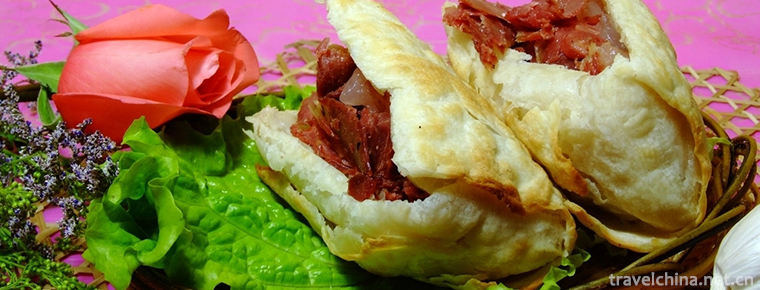
-
West Lake Scenic Spot in Hangzhou
Hangzhou West Lake Scenic Spot is located in the center of Hangzhou City, Zhejiang Province. It is divided into lakeside area, Lake Center area.
Views: 103 Time 2018-12-07 -
Dayi Liushi Manorial Museum
Dayi Liu Manor Museum, located at No. 15 Jingui Street, Anren Town, Dayi County, Chengdu City, Sichuan Province, is one of the most important historical sites and representative buildings in modern Ch.
Views: 203 Time 2018-12-26 -
Xinjiang Tianshan
Tianshan Mountain in Xinjiang, the eastern part of the Tianshan Mountains, is also the main part of the Tianshan Mountains and the world natural heritage. Tianshan Mountain is one of the seven major m.
Views: 181 Time 2019-02-25 -
Nail twist Jiaru jiacuo
Jiaru is a traditional dance of Mosuo people in Lugu Lake, Yunnan Province. It is a song and dance for people to celebrate harvest, festivals and pray for gods..
Views: 273 Time 2019-05-05 -
Castawin Dance
Castawin Dance, a traditional dance in Heishui County, Sichuan Province, is one of the national intangible cultural heritage..
Views: 191 Time 2019-05-08 -
Construction Techniques of Luling Traditional Dwellings
The traditional wooden structure construction technique is an ancient traditional handicraft of the Han nationality. The traditional architecture of the Han nationality is a building system with woode.
Views: 271 Time 2019-05-15 -
Legend of Su Dongpo
The legend of Su Dongpo is a group of traditional folklore stories evolved from the story of Su Shi, a great writer in the Northern Song Dynasty..
Views: 153 Time 2019-06-16 -
Beijing Language and Culture University
Beijing Language and Culture University, established in 1962 under the personal care of Premier Zhou Enlai, is a university directly under the Ministry of Education of China. In June 1964, it was name.
Views: 213 Time 2019-09-22 -
Capital University of Economics and Business
Capital University of Economics and Trade was founded in 1956. It was a key university under the municipal authority of Beijing, which was merged and established by the former Beijing School of Econom.
Views: 141 Time 2019-09-22 -
Leshan economy
In 2019, Leshan's GDP will reach 186.331 billion yuan, an increase of 7.6% over the previous year in terms of comparable prices. The industrial value increased by 24.288 billion yuan, with an increase of 24.288 billion yuan in the first value, and the second.
Views: 334 Time 2020-12-17 -
Yibins first industry
In 2019, the total output value of agriculture, forestry, animal husbandry and fishery in Yibin is 45.084 billion yuan, up 2.8% over the previous year; the added value of agriculture, forestry, animal husbandry and fishery is 28.346 billion yuan, an increase of 3.0%..
Views: 122 Time 2020-12-18 -
Cultural undertakings in Guangan
As of 2019, there are 5 radio and TV stations and 2 Radio and TV stations in Guang'an City. The comprehensive coverage rate of broadcasting is 99.7%, and that of television is 99.8%. There are 7 public libraries, 21 theatres and theatres, 4 museums an.
Views: 329 Time 2020-12-19
